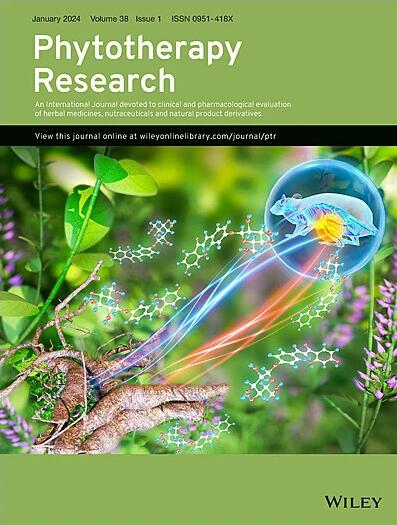Role of Glutathione in Parkinson's Disease Pathophysiology and Therapeutic Potential of Polyphenols
IF 6.1
2区 医学
Q1 CHEMISTRY, MEDICINAL
引用次数: 0
Abstract
Oxidative stress is recognized to have a central role in the initiation and progression of Parkinson's disease (PD). Within the brain, neurons are particularly sensitive to oxidation due in part to their weak intrinsic antioxidant defense. Theoretically, neurons mostly depend on neighboring astrocytes to provide antioxidant protection by supplying cysteine‐containing products for glutathione (GSH) synthesis. Astrocytes and neurons possess several amino acid transport systems for GSH and its precursors. Indeed, GSH is the most abundant intrinsic antioxidant in the central nervous system. The GSH depletion and/or alterations in its metabolism in the brain contribute to the pathogenesis of PD. Noteworthy, polyphenols possess potent antioxidant activity and can augment the GSH redox system. Numerous in vitro and in vivo studies have indicated that polyphenols exhibit potent neuroprotective effects in PD. Epidemiological studies have found an association between the consumption of dietary polyphenols and a lower PD risk. In this review, we summarize current knowledge on the biosynthesis and metabolism of GSH in the brain, with an emphasis on their contribution and therapeutic potential in PD. In particular, we focus on polyphenols that can increase brain GSH levels against PD. Furthermore, some current challenges and future perspectives for polyphenol‐based therapies are also discussed.谷胱甘肽在帕金森病病理生理学中的作用和多酚的治疗潜力
本文章由计算机程序翻译,如有差异,请以英文原文为准。
求助全文
约1分钟内获得全文
求助全文
来源期刊

Phytotherapy Research
医学-药学
CiteScore
12.80
自引率
5.60%
发文量
325
审稿时长
2.6 months
期刊介绍:
Phytotherapy Research is an internationally recognized pharmacological journal that serves as a trailblazing resource for biochemists, pharmacologists, and toxicologists. We strive to disseminate groundbreaking research on medicinal plants, pushing the boundaries of knowledge and understanding in this field.
Our primary focus areas encompass pharmacology, toxicology, and the clinical applications of herbs and natural products in medicine. We actively encourage submissions on the effects of commonly consumed food ingredients and standardized plant extracts. We welcome a range of contributions including original research papers, review articles, and letters.
By providing a platform for the latest developments and discoveries in phytotherapy, we aim to support the advancement of scientific knowledge and contribute to the improvement of modern medicine.
文献相关原料
| 公司名称 | 产品信息 | 采购帮参考价格 |
|---|
 求助内容:
求助内容: 应助结果提醒方式:
应助结果提醒方式:


